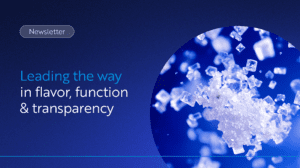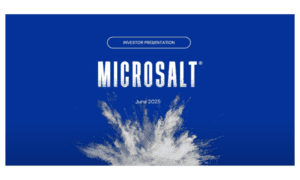High sodium intake is often associated with increased weight. Understand the real relationship between sodium and weight gain.
Key Takeaways:
- Most foods that are high in salt are also high in calories
- High salt intake has been associated with weight gain, independent of caloric intake
- Eating foods that have high salt intake may increase your risk for obesity
- Reducing sodium intake can help you shed weight
The relationship between sodium intake and weight gain is complicated. Some people believe that consuming too much salt makes you thirsty, so the weight gain is actually due to increased fluid intake. While this theory may not be entirely true, a new study has indeed linked sodium intake to weight gain and a higher risk for obesity.
Does high sodium cause weight gain?
Sodium is an essential mineral the body needs for a variety of reasons. However, sodium should be consumed in moderation. Excessive sodium intake has been linked to hypertension and cardiovascular complications, which can result in death.
Sodium is primarily consumed in the form of table salt or in processed foods. Over the past decade or so, there is increasing evidence that people who consume high amounts of sodium often weigh more than their counterparts who consume less sodium.
Studies link sodium intake to weight gain
Previous studies have linked high-sodium diets with weight gain and obesity. A 2014 study published in Nutrition Hospitalaria showed a positive relationship between body mass index (BMI) and sodium in urine (urinary sodium concentration).
The study involved 418 adult participants aged between 18 to 60 years. Their BMI was calculated and their dietary intake recorded for two consecutive days using 24-hour recalls.
Sodium levels were determined by testing using 24-hour urine samples, with the results revealing the following:
- 34% of the participants were considered overweight
- 14% of the participants had obesity
- A positive relationship exists between adiposity factors (BMI and waist circumference) and sodium levels in urine
- The participants demonstrated high food intake and caloric intake, especially via meats, processed foods, and snacks
High sodium intake and water retention
Consuming a high-sodium diet is associated with water retention. It is believed that a high-salt diet triggers thirst and causes one to consume more water than they typically would. The excess water is retained to help dilute sodium concentration in the body, often causing discomfort as well as temporary weight gain. This weight gain is not in the form of fat but water. It may make you feel puffy but it should not be a source of concern as the water should be eliminated soon enough. But how valid is this theory?
Increased salt intake triggers hunger, not thirst
According to a 2017 study that was published in the Journal of Clinical Investigation, it appears that consuming higher amounts of salt will actually make you hungrier than thirstier. The results of this study clearly challenge the widely held belief that salt increases thirst and dampens appetite.
This study sought to draw the relationship between salt intake and hunger/thirst on a simulated trip to Mars. Why Mars, you ask? The goal was to test the hypothesis that an increase in salt intake of 6 grams per day would impact the fluid balance in men living under ultra-long-term, controlled conditions.
Ten male volunteers participated in the research, which ran for a period of weeks. The researchers found that a higher salt intake actually made the participants hungrier, but not thirstier. This is because our bodies are programmed to ensure that water-conserving mechanisms kick in as more sodium is consumed.
Processed foods are usually high in sodium but satiate less effectively. And consuming salty processed foods is likely to increase your caloric intake in addition to your sodium consumption. Salty foods may be flavorful but have an increased risk of causing weight gain and other complications that are related to high sodium intake.
Does high sodium interfere with leptin levels?
Leptin is a hormone responsible for preventing hunger and causing us to feel satiated. While a high-sodium diet does not interfere with leptin levels, it may increase leptin resistance and therefore also increase hunger. A study conducted on mice demonstrated that leptin-resistance mice have a higher appetite, eat more, and have a higher weight. This, however, has yet to be tested on humans.
How to reduce sodium intake
According to the American Dietary Guidelines, adults should not consume more than 2,300 mg of sodium each day. However, most Americans consume up to 3,400 mg of sodium – over a 50% increase of the recommended amount.
Here are a few things that can be done to reduce sodium intake:
1. Reduce the consumption of processed foods
Processed foods such as pizza, tacos, hamburgers, and French fries are likely to be quite high in sodium. Opt instead for homemade meals and fresh foods whenever possible.
2. Choose lower-sodium foods and snacks
The demand for lower-sodium foods and snacks has increased as more Americans have become increasingly aware of the risks associated with excessive sodium intake. Food and beverage manufacturers have also diversified their reduced-sodium product offerings.
3. Substitute salt with spices and herbs
Spices and herbs can be used to flavor foods in place of salt. They also come in handy when reducing your sodium intake as you allow your taste buds to get used to the less salty taste.
4. Try MicroSalt®
MicroSalt® ultrafine salt particles offer all the flavor of regular salt, and the best part is that these extra flavorful salt particles have 50% less sodium. Because Americans are consuming 50% more sodium than they should, MicroSalt® can be used to effectively halve Americans’ sodium intake without compromising taste.
Contact MicroSalt® today with any questions
Our team strives to create a new, better way of enjoying food, where great taste and good health go hand-in-hand. MicroSalt® is the proud global winner of the P&G Alumni Network’s 2021 Star Entrepreneur Award, and we’re here to help make low-sodium healthy eating – and healthy living – a reality. Contact us via our message page, connect with one of our international offices, or call 1-877-825-0655 to learn more.




